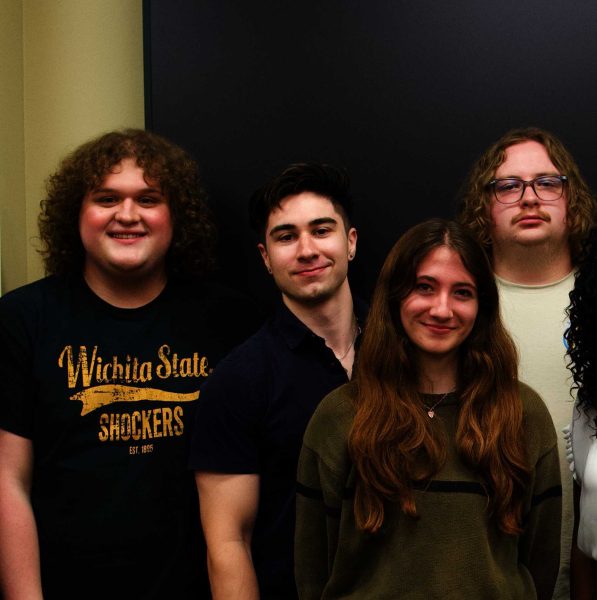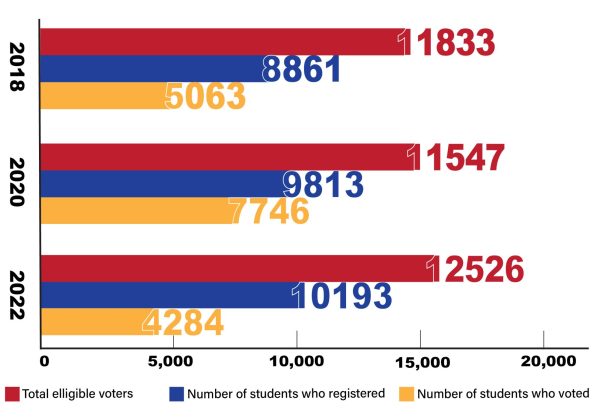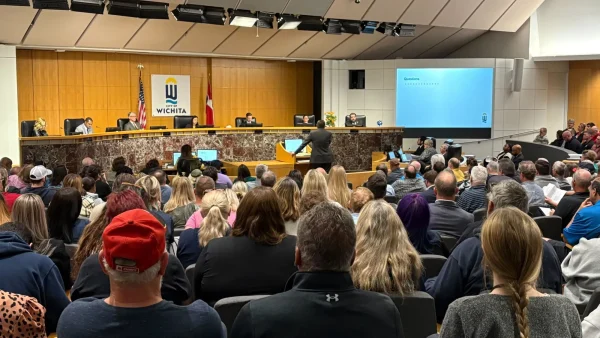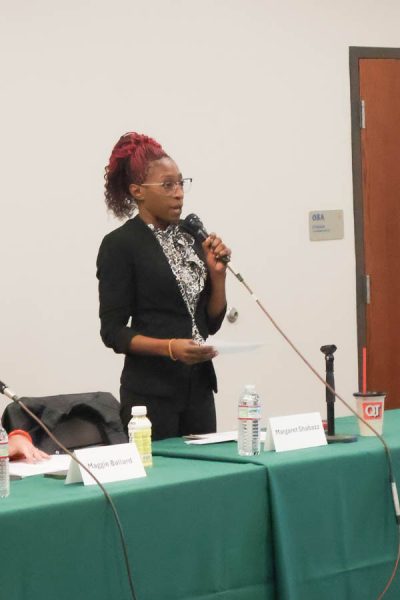Innovation Rebranded: WSU’s public relations push to change the image of Innovation Campus
Courtesy of Wichita State Innovation Campus
A map of Wichita State’s Innovation Campus.
If you’ve read a piece of Wichita State promotional material this semester or listened to an administrator talk up new public-private partnerships, chances are, you’ve heard about upcoming developments on the “east side of campus” or “campus expansion” — not Innovation Campus.
WSU is making a concerted effort to rebrand Innovation Campus — the 120 acres of land on the grounds of the former Braeburn Golf Course that operates as WSU’s hub for industry partnership. It’s a departure from the mantra of “innovation” that has pervaded campus since John Bardo became president in 2012.
“We’ve been using some new language to describe the campus expansion because we’re expanding in a lot of ways beyond Innovation Campus,” Vice President for Strategic Communications Lou Heldman said.
Heldman said the “innovation” terminology is simply evolving.
“It’s not falling away so much as it’s evolving,” Heldman said. “It’s not going away but it’s growing in other directions.”
In his February newsletter, President Bardo wrote that “‘Innovation Campus’ has come to mean a mindset as well as a physical place.”
“We’ve begun to think about Innovation Campus as any place where the university has the opportunity to put the strategic plan, vision and mission into action,” Bardo wrote.
Last year, in partnership with WSU Tech — formerly Wichita Area Technical College — WSU opened the Shocker Studios recording studio on south Harry. This September, WSU and WSU Tech held a ribbon-cutting ceremony for a satellite campus in the same shopping mall facility.
“With WSU turning up in so many new places, the most notable thing on the, let’s call it the legacy campus, has become the 120 acres to the east — Innovation Campus — so we’ve started thinking more about it as campus expansion or the east side of campus, just to designate the new part,” Heldman said.
Director of News and Media Relations Joe Kleinsasser said it makes sense for students to simply think of Innovation Campus as “campus.”
“Yeah, at first it was being dubbed the Innovation Campus when we first started talking about it, but at some point, you’re going to move on to the fact that it’s still Wichita State University,” Kleinsasser said. “It’s the east side of campus versus just Innovation Campus, so you’re going to see that more and more, I’m sure.”
Heldman echoed Kleinsasser’s sentiment.
“I said several years ago that at some point, in the same way that social media has just become media, Innovation Campus will just become campus because it will be built out and there will be whole new generations of students who don’t make any distinction,” Heldman said.
Vice President for Student Affairs Teri Hall said she makes a point to refer to Innovation Campus as the “campus expansion.”
“In five years, no one’s going to call it the Innovation Campus anymore,” Hall said.
“For those of us that are watching it go up, it’s hard to imagine that, but eventually it’s just going to be who we are.”
Heldman disagreed with Hall’s timeline — saying WSU’s industry partners have adopted the “innovation” terminology.
“It’s going to be Innovation Campus for many years to come because that’s a name that has caught on with industry,” Heldman said.
Heldman said the Meritrust Credit Union branch set to open later this month on Innovation Campus has incorporated a design with innovation-themed wall quotes.
The Wichita State Innovation Alliance (WSIA), the board that manages Innovation Campus’s public-private partnerships, is comprised of members appointed by Bardo. The university website describes it as “a nonprofit organization that serves as the governing entity for Wichita State University’s Innovation Campus.”
Heldman said rebranding Innovation Campus is unlikely to affect WSIA’s utility. He said Innovation Campus embodies intellectual property — not just new buildings.
“The Innovation Campus is tied to that 120 acres, but it’s also tied to the development of intellectual property, because if the system is running on all cylinders . . . the campus will develop patents that may be licensed or turned into products,” Heldman said.
“The twin goals have always been the education of students and the development of the economy.”

Matthew Kelly is a former editor-in-chief and managing editor for The Sunflower. Kelly graduated in 2020 with a bachelor’s degree in political science...










